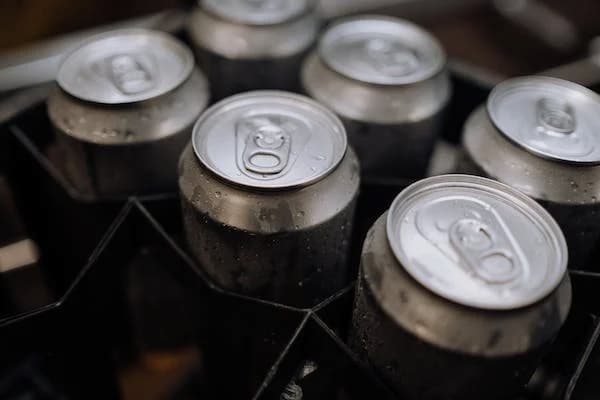Technology is playing a more prevalent role in most aspects of human life than it ever has before. It’s even penetrated some of the most traditional industries, bringing about a revolutionary transformation for them. One such industry is drinks manufacturing – a sector whose processes are inherently complicated due to its immense scale and nature as a globalised market.
While some feel that technology may be disruptive to the whole sector, being rather blind to the solutions that modern technology has brought forth, others have realized the possible game-changers that could positively impact their businesses.
Here, we look at how technology has revolutionized the drinks manufacturing sector and how this trend is set to continue.
1. Production Equipment
The majority of drinks manufacturers produce their products in factories. These facilities require machines to help them produce their goods on an industrial scale, which is where much technological innovation has taken place.
Automated bottling lines have enabled drinks companies to keep up with demand while maintaining high-quality standards. They can also be customized according to specific requirements, allowing companies to improve efficiency further.
The most advanced production lines use computer vision and robotics technology to automate bottle inspection and labeling processes at high speeds while maintaining high accuracy. They can be used across multiple lines and locations without additional staffing or training costs.
2. Palletising
Transporting goods using pallets is easy. They are made of wood or cardboard and have become an integral part of modern life – whether for moving groceries around a supermarket or shipping goods across the world by air or sea.
Pallets are designed in such a way that they can easily be moved with forklifts or other machinery without damaging the goods they contain. Before palletising machines were invented, this process was done manually by forklift drivers, who had to lift each box before placing it on their truck or train wagon. This meant that this process was labor-intensive and dangerous as workers were often injured by moving boxes too quickly or dropping them on their feet!
3. Using Big Data to Purchase Raw Materials
One of the biggest challenges drinks manufacturers face is sourcing the raw materials required to produce their goods. This is especially true for smaller companies that may not have as much buying power and hence, access to higher-quality ingredients at a lower price point.
Big data has proven to be a game-changer as it allows manufacturers to collect information about the ingredients they use in their products and compare them with market prices. This allows them to obtain more competitive quotes from suppliers while also helping them find new ones they may not have been aware of before.
4. Tracking the Supply Chain
To maintain a high level of quality control, drinks manufacturers need to track their supply chain from when an ingredient is sourced until it is shipped out to customers. This can be accomplished using modern tracking and monitoring technologies that allow companies to monitor their inventory in real time.
This allows them to ensure that their products meet the required quality standards. It also gives them valuable information about any disruptions or delays in the supply chain, which can be addressed quickly and efficiently.
5. Consumers as Partners
One of the biggest changes technology has brought about in the drinks manufacturing sector is the increased role of consumers in product development and marketing. With social media platforms and online review sites at their disposal, consumers have more access to information than ever before, which they can easily share with other people via posts or comments.
This means drink manufacturers must work harder than ever to earn their customers’ trust and loyalty. They can achieve that by offering high-quality products and services and communicating with consumers directly online. This can help them gather feedback about their products and respond quickly to any potential issues or concerns.
6. Sustainability
For many consumers, having a positive impact on the environment is one of the most important considerations when choosing a brand or product. This has made many drink manufacturers adopt more sustainable business practices, such as using less packaging, sourcing ingredients from sustainable sources, and reducing the carbon footprint of their operations.
Sustainability can also help companies gain a competitive advantage by increasing consumer trust and loyalty. It will also make them appealing to new markets that are becoming more environmentally conscious.
7. Risk Management
As with any manufacturing industry, the drinks sector is not immune to risks that can threaten business operations and profitability. Effective risk management involves implementing proactive measures such as contingency planning, ensuring regulatory compliance, and investing in quality insurance policies.
In addition, it is also important for companies to regularly monitor their financial performance and adjust their strategies accordingly to minimize any negative impacts that may arise from unforeseen events or market changes
8. Collaboration
To remain competitive and respond to changing consumer demands, drink manufacturers must continuously seek new partnerships with suppliers, distributors, retailers, and other stakeholders in the industry. This can be achieved through collaborative initiatives such as joint research projects, supply chain collaboration platforms, and cross-industry partnerships.
By establishing strong networks and leveraging each other’s resources, companies can ensure that they are always at the forefront of emerging trends, have access to the latest technology, and can provide more value for their customers.
9. Innovation
To succeed in the highly competitive drinks manufacturing sector, companies must constantly look for new and innovative products and services that can set them apart from their competitors. This may involve investing in research and development, partnering with external inventors, or monitoring trends and consumer preferences to identify growth opportunities.
To thrive in this dynamic industry, companies must have a strong culture of innovation and be willing to take risks to stay ahead of the curve and capture new markets.

The Future is Bright with Technology!
To succeed in the increasingly competitive drinks manufacturing sector, companies must adopt a strategic approach incorporating various key elements, including automation, sustainability, risk management, collaboration, and innovation. By leveraging new technologies and working closely with other stakeholders in the industry, they can continue to stay ahead of the curve and provide high-quality products that meet their customers’ evolving needs and preferences.


